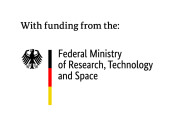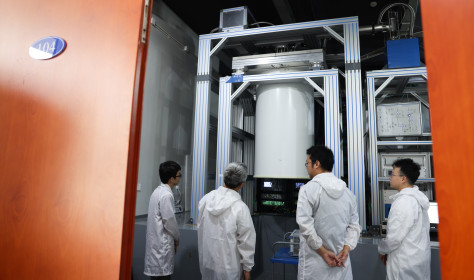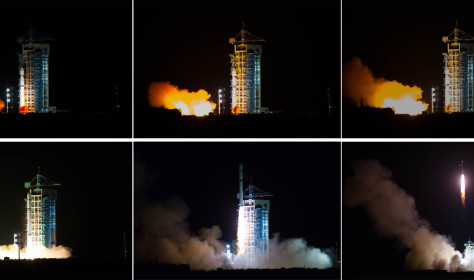Quantum
Quantum technologies are emerging as a key subject of global power competition due to their potential military applications and ability to fundamentally transform people’s lives. Quantum effects can overcome limitations of digital technologies, solve computational problems that take impossibly long using traditional computers and transmit information over long distances without the risk of being intercepted. China hopes quantum technologies will allow it to leapfrog Western rivals.
China and the US are locked in a tight race for supremacy in quantum technologies. Through sustained government investment, China has achieved a number of firsts, including developing and launching the first quantum satellite, Micius.
While China has so far led in quantum communication, which enables secure communication over long distances, the US still leads in quantum computation.
China’s quantum technology development is a major result of mission-driven innovation. In the US, private companies like IBM dominate the race. So far at least, Chinese quantum technology companies and researchers have relied on government funding. Instead of large digital companies, startups founded by people with university affiliations, and usually funded by local or central government funds, dominate the landscape.
Quantum technologies are also a major area of international collaboration. Micius, the quantum satellite, was developed in cooperation with the University of Vienna, with future communication tests taking place between China and Russia. Many quantum technologies are still far from being market-ready but could provide decisive advantages to a military using them. As such, quantum research is at the forefront of discussions about research security in Europe.
Graphics dashboard
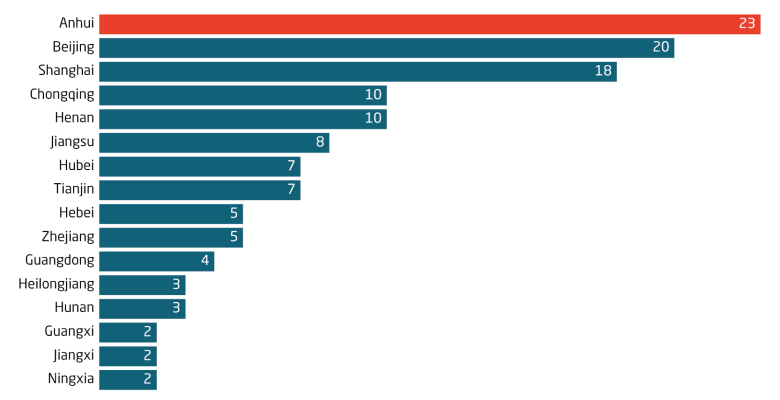
Quantum technologies are concentrated in Hefei, Anhui. Professor of Physics Pan Jian-Wei at the University of Science and Technology of China in Hefei is at the center of quantum technology development. He earned his PhD in Vienna and did a postdoc in Heidelberg before moving to Hefei to build a government-funded lab.
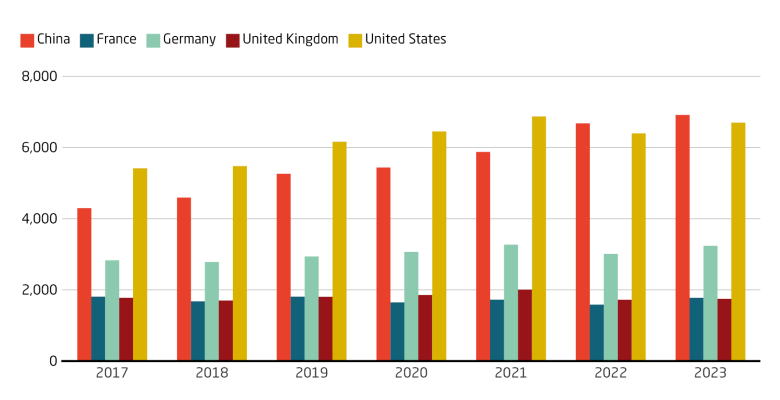
Since 2022, China-affiliated authors have published more research papers on quantum technologies than US-affiliated ones. The field is still highly internationalized, with many European countries also publishing significant papers. Germany is over-represented for its size, reflecting the world-class academic research taking place in Germany in quantum technologies.
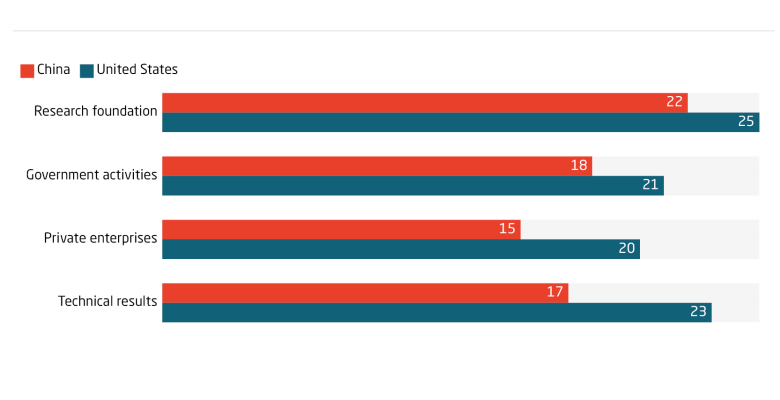
A report on quantum technology of Chinese Academy of ICT (CAICT), a think tank under the Ministry of Industry and Information Technology, stated that the US still leads China in many indicators. Despite a solid research basis in quantum computing, CAICT said China must improve research commercialization, company development and industrial roll-out. Dependence on foreign technology was a key indicator.
Quantum in China: Timeline of crucial events
First A-listing of a quantum firm in China at the Shanghai Stock Exchange. The firm, QuantumCTek, offers quantum key distribution services for secure communications.
The US adds QuantumCTek to its Entity List of trade-restricted companies, cutting off access to key US technology.
China launches its second quantum satellite, Jinan 1, a successor to Micius, the first quantum satellite in the world. These satellites allow secure communication over long distances.
The MIIT issues “Implementation opinions for future industries,” detailing goals for quantum computing.
Origin Quantum presents the 24-qubit quantum computer Wukon. Some of the machines used to create it are reportedly German.


Researchers at the University of Science and Technology (USTC) in Hefei claim their photonic quantum computer Jiuzhang, using 76 photons, beats traditional computers (quantum supremacy).
Origin Quantum becomes China’s first unicorn (startup worth more than USD 1 billion) in quantum technology. Its founders came from the Chinese Academy of Science in Hefei.
China’s dedicated technical commission on quantum standards (TC578) issues its first national standard in quantum communication.
China and Russia successfully establish quantum communication over a distance of 3800 km, using China's quantum satellite. Earlier experiments had been conducted with Austria.
The US adds 22 Chinese organizations and firms to its Entity List, including Origin Quantum, USTC, and several CAS institutes. They can no longer import US-made technology.
- The People’s Liberation Army (PLA) claims to be testing over 10 quantum warfare weapons for high-value military intelligence, navigation, and air defense, and for processing large amounts of battlefield data. These experiments show how China’s “Quantum +” (量子+) program is bringing quantum processing to real-life applications such as cybersecurity, information technology, government affairs, finance, and energy. (Source (EN/CN): SCMP, STCN, January 15, 2026)
- China has reportedly unveiled a new photonic quantum chip for complex computing tasks designed to speed up calculations by a thousandfold. A pilot production line may be able to manufacture 12,000 wafers annually, each providing about 350 chips. This yield is modest compared with mature chip fabs but is a starting point for the photonics sector. (Source (EN): QuantumInsider, November 15, 2025)
- Researchers at the Chinese Academy of Sciences (CAS) have reportedly developed a new quantum computing architecture based on fiber optic arrays that addresses a key challenge for quantum computing operations. This is a further step toward simultaneously achieving high parallelization, high speed, and high stability in controlling individual atoms. (Source (CN): CAS, November 11, 2025)
- China Telecom has reportedly completed the first successful transmission test of quantum and classical signals over 101.6 kilometers of hollow-core optical fiber, achieving high capacity and secure rates. China is still far from achieving a “quantum internet,” but this shows its efforts to integrate quantum encryption into real-world telecom networks. (Source (CN): EETimes, November 17, 2025)
- China has deployed a superconducting quantum computer based on the “Zuchongzhi 3.0” (祖冲之三号) design for commercial use. It was developed by China Telecom Quantum Group and QuantumCTek, featuring 105 readable qubits and 182 couplers. (Source (EN): QuantumInsider, October 14, 2025)
- Pakistan and China have signed a memorandum of understanding to collaborate on quantum technologies. The agreement includes plans for China Electronics Technology Group Corporation to help establish Pakistan’s National Center for Quantum Computing. (Source (EN): QuantumInsider, October 27, 2025)
Publications
